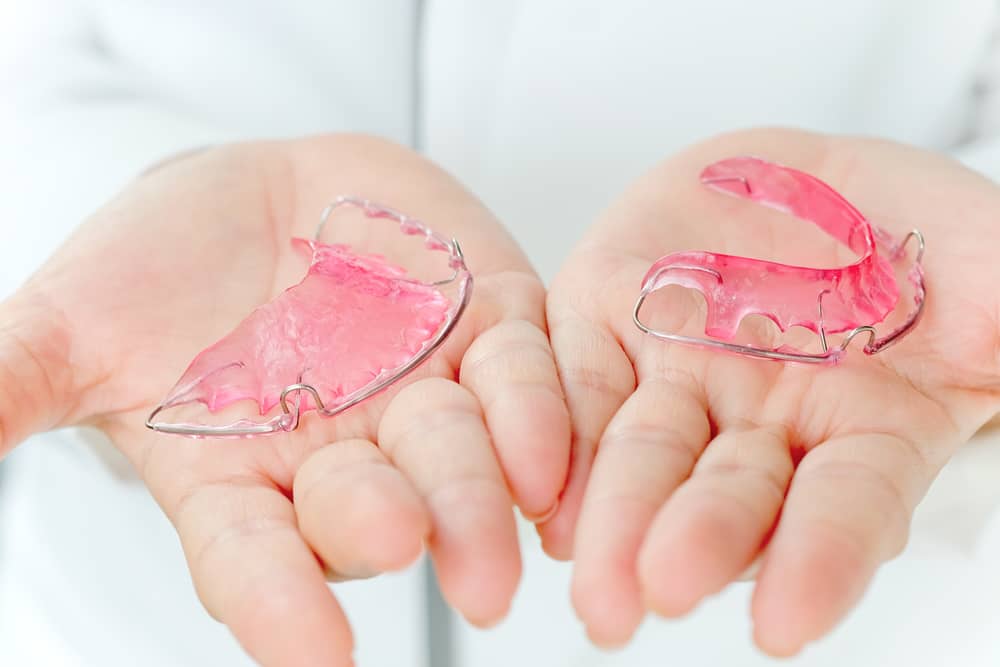
What Should I Do if I Stopped Wearing My Retainer?
It may have become damaged, lost in a move, or you may have simply decided you no longer wanted to wear it. No matter what situation you’re in, not wearing your retainer can be a big mistake. You’ve put time, money and effort into your orthodontic treatment and now that it’s over, you can’t assume the work is done. In fact, it’s just begun. Maintaining your smile for years is an important job, and it’s up to you and only you to ensure this job is done properly. So, maybe the damage has already been done. Now what?
Why Wearing Your Retainer is Important
First off, why are these little pieces of acrylic so important? A retainer is a critical part of your orthodontic treatment plan because our teeth are always shifting, and if you’re not wearing your retainer properly, you run the risk of your teeth shifting back to their original positions. This can result in discomfort and the unwanted possibility of having to undergo more orthodontic treatment. It is especially important the first year following treatment as your teeth have the greatest risk of shifting; however, don’t think that after the first year, your work is done.
All of the hard work you put into with braces or Invisalign can be erased if you don’t wear your retainer. It can be hard to keep in mind, especially when the movement doesn’t happen overnight, but it is imperative to keep on top of your post-care routine. Your braces took months (or even years) to straighten your teeth; constantly forgetting to wear your retainer will add up over time in the same way (but in reverse). Perhaps you knew this and perhaps you didn’t. All that matters now is what happens next.
I Didn’t Wear My Retainer. Now What?
If you’ve stopped wearing your retainer, the first thing you’ll need to do is schedule an appointment with your orthodontist. Don’t be embarrassed or feel guilty for letting it slip your mind, even the most perfect patients forget their retainer once in a while. It’s best to stay on top of the problem, and you should address it as soon as possible. If it has only been a few days, it’s unlikely that your teeth will have noticeably moved. If it’s been weeks or months, your orthodontist still needs to evaluate your smile. If it’s been years? There’s a chance that things are fixable, but only a visit to the office will tell for sure. They will evaluate you and decide the following:
- How much shifting has occurred?
- Have the teeth moved back to their original positions?
- Is further treatment needed?
Depending on the amount of shifting, your orthodontist will provide your next steps, so that you can correct any issues and get back on track.
I Stopped Wearing My Retainer and It Hurts. What Should I Do?
Even going a few days without your retainer could cause discomfort when you put it back in. Especially when your teeth are in their early stages post-braces, they’re still trying to stabilize and get used to the new situation. Your teeth naturally want to shift back to their original alignment, so staying on top of your post-care maintenance is key. It is normal for your teeth to feel a little sore, even if you are wearing your retainers regularly.
- Call your orthodontist and tell them your retainers are too tight
- If you’ve been wearing them regularly, you might need them loosened
- Know your mouth will have an adjustment period no matter what
I Haven’t Worn My Retainer For Years. Can I Again?
So your days of wearing your retainer (and listening to your orthodontist) are long behind you. If you’re fortunate, your teeth may have remained relatively straight without the appliance. Even if your post-braces smile has mostly stayed intact, there’s a strong chance you’ve noticed some minor imperfections pop up. As we mentioned, as soon as your teeth have a chance to move back to their natural alignment, they will. It takes awhile for your new smile to completely stabilize, and not wearing your retainer is a risky move. If you’re wondering if popping your retainer back in after a few years will fix your flaws, the answer isn’t exactly clear.
- Making the decision without consulting your orthodontist could result in painful and damage to your teeth and gums
- Your retainer could possibly get stuck if it is forcefully pushed onto a smile it no longer fits
- Your orthodontist may be able to adjust your retainer to help re-straighten your teeth
Additional Treatment Options
If additional treatment is needed, you’ll need to explore your options. You may find that Invisalign Express is the fix for you, as this treatment option tends to be for milder cases with a shorter duration of treatment. After having braces for a period of time, it’s likely you want the straight smile without having to endure the metal gear all over again. If this is the case, then clear aligners are an excellent alternative to going back to square one. You may even choose to undergo another round of braces. Depending on how much your teeth have shifted, your treatment time may be significantly shorter than your initial treatment experience.
As you can see, failing to wear your retainer properly and as prescribed can have some pretty hefty consequences. If you’re in this situation, it’s important to get in touch with your orthodontist so they can come up with a plan of action for you, and remember, once you’ve fixed this issues, be sure to wear your retainer ! After all, now you know how important this piece is to your treatment plan.
At Milnor Orthodontics, our experts are here to help you achieve a priceless smile. Call our office at (970) 484-3214 or visit milnororthodontics.com to learn more. We're located at 1103 S. Shields St. in Fort Collins, Colorado.







